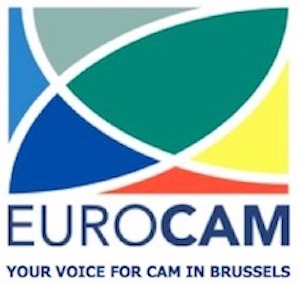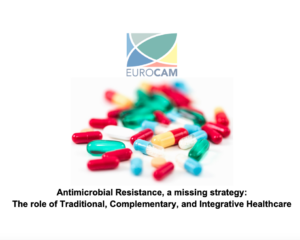Resolving AMR needs a cross-sectoral and multi-disciplinary One Health approach
Resolving Antimicrobial Resistance (AMR) needs a cross-sectoral and multi-disciplinary One Health approach with health promotion at its core. Prioritising health in all EU strategies should, therefore, be a priority. With its primary focus on health promotion, Traditional, Complementary, and Integrative Healthcare (TCIH) has the potential to help close this gap.
Traditional, Complementary, and Integrative Healthcare
Modern definitions of health emphasise a patient-centred approach, focusing on holistic health, that encompasses “a state of complete physical, mental and social well-being and not merely the absence of disease or infirmity.”1] TCIH calls for healthcare that respects nature, is sustainable, and adapts to the individual needs of patients to improve their health and well-being 2]. Which increases their resilience to infections and, therefore, their reliance on antibiotic medicines.
The added value of TCIH in AMR strategies
Recently acknowledged by the Gujarat and G20 New Delhi Leaders Declaration, the WHO and G20 agreed on the importance of exploring how the TCIH sector can contribute to primary healthcare and global health priorities, including AMR. While global recognition of AMR has prompted wider policy responses and healthcare initiatives, additional strategies are needed to build health resilience and enhance health maintenance 3]. TCIH focuses on improving infection prevention and promotes and facilitates the prudent use of antimicrobials 4].
EUROCAM calls for the following actions to achieve this:
POLICY: Include TCIH in the next European One Health Action Plan Against AMR and in further One Health Strategies, with the inclusion of civil society in decision-making processes.
HEALTHCARE SYSTEMS: Include TCIH in national public health strategies and National Action Plans (NAPs) on AMR, and include education on TCIH approaches as options in the prevention and treatment of infectious diseases, thus reducing reliance on antibiotic medicines.
PATIENT INFORMATION AND EDUCATION: Promote health literacy and patient awareness on the prudent use of antimicrobials and the options of non-antibiotic TCIH prevention and treatments.
RESEARCH & DEVELOPMENT: Invest in comparative research with clinical relevance to enhance patients outcome (e.g. comparison with standard care) and develop initiatives that focus on the integration of TCIH prevention and treatment strategies. Allocate funding to disseminate results to healthcare professionals, policymakers, stakeholders and the public through appropriate tools.
ONE HEALTH APPROACH: Foster trans-disciplinary collaboration between human, animal, and plant sectors on a regional, national, and international level to effectively prevent AMR in an environmentally sustainable way.
EUROCAM is committed to fostering collaboration and knowledge-sharing on TCIH with policymakers and stakeholders. This commitment is directly aligned with the priorities set by the GIFTS-AMR research consortium,5] underlining that together, we are stronger in our efforts to address AMR.
The paper ‘AMR, a missing strategy’, reflects the position of EUROCAM, the European foundation uniting umbrella organisations of patients, physicians, practitioners, and veterinarians in the TCIH sector.
Sources:
[1] https://apps.who.int/gb/bd/PDF/bd47/EN/constitution-en.pdf?ua=1
[2] TCIH is based on a holistic, or ‘whole person’ approach to health, with the aim of promoting physical, mental and social well-being to maintain or regain wellness and health.
[3] https://www.who.int/publications/i/item/9789240041387
[4] https://health.ec.europa.eu/system/files/2020-01/amr_2017_action-plan_0.pdf
[5] The GIFTS-AMR research consortium has outlined a comprehensive agenda on the potential role of TCIH in mitigating Antimicrobial Resistance (AMR) in this paper https://www.b2match.com/e/research-on-tcih-strategies/components/34631/biYz4tsQRpZA

